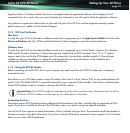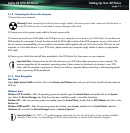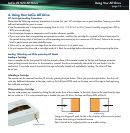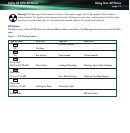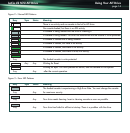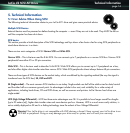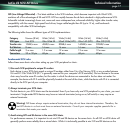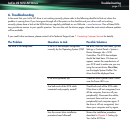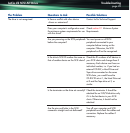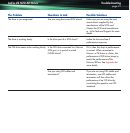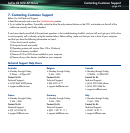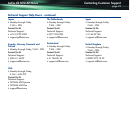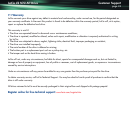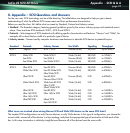
Technical Information
page 18
LaCie d2 SCSI AIT Drive
same SCSI chain, doing so will limit the performance of all devices on the chain to SE levels. An all-LVD chain will enable
you to achieve the ultra-fast transfer rates that LVD has to offer. For more information on mixed SCSI chains, please refer to
8. Appendix – SCSI Questions and Answers.
4) Respect the maximum allowable cable length for your SCSI chain.
In order to ensure optimum performance, you must respect the maximum allowable length for your SCSI chain. The
maximum allowable length of the chain depends on the type of devices (SE, LVD or mixed) connected to it. Consult the
table above, or contact your computer supply specialist for more details.
5) Never mix HVD devices with SE or LVD devices.
HVD devices require a special controller and are not compatible with LVD or SE devices. If you connect an HVD device to
an SE or LVD device, none of the devices will work properly. Furthermore, you may damage the devices or your computer
system.
6) Turn on all of your SCSI peripherals before turning on your computer.
Before turning on your computer, always power on all of the devices in your SCSI chain. Otherwise, the computer will not
recognize the devices. Also, never leave any unpowered devices in your SCSI chain. If there is an unpowered device in
your chain, the other peripherals may not work correctly and directory and/or data corruption may occur.
Warning! Always power down the computer before powering off your SCSI devices. Failure to so can result in
the corruption of the hard drive’s directory.
7) Turn off your computer and SCSI peripherals before disconnecting them from the chain.
Do not disconnect any SCSI peripherals from your computer or chain before turning off the computer and all of the SCSI
devices. Doing so may damage the peripherals and/or the computer system.



